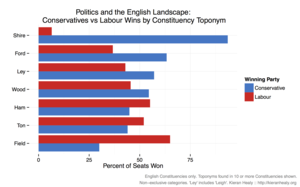In a time when "to other" has become a condemnatory verb, randos are the other. If the mores in a given ZIP code preclude snarling at people for their race, sex, creed or sexual orientation, those uncertain of their own grip on the social center can always dump on randos. It is a nice, clean slur, free of identifying social characteristics.
It refers to the extras, the spear-carriers in the background, the people who apparently have only themselves to blame for their exclusion, those you'll forget all about when you move away. Their being tagged with that handle may indeed derive, at bottom, from their race, sex, creed, sexual orientation, body shape, economic misfortune or anything else, but users always have convenient deniability at their service.
After all, there are so many people around nowadays, perhaps more than all the collected dead of ages past -- who can keep track? We rest secure in the knowledge that while those people over there represent arbitrary collisions of data, we ourselves are a result of long and careful planning.
Luc Sante is the author of "Low Life" and "Kill All Your Darlings." His new book, "The Other Paris,"

